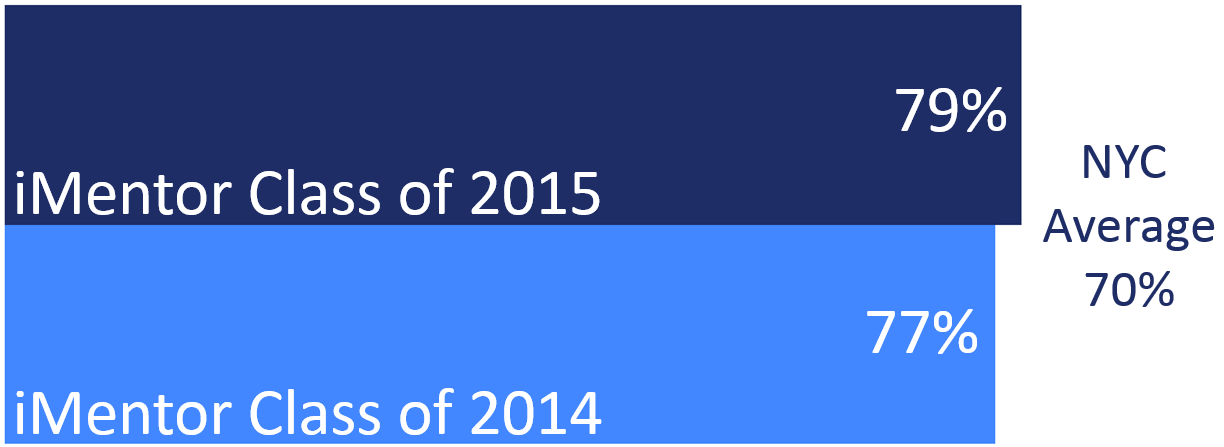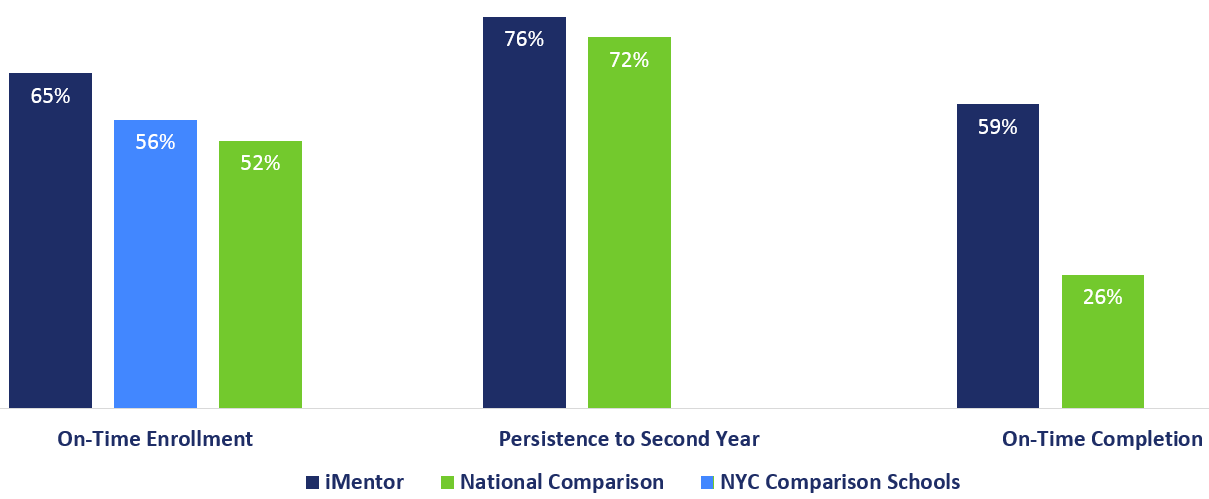College graduation is the ultimate indicator of success of the iMentor program. In order to achieve the goal of college graduation, mentees must first graduate high school and persist in college. In order to measure progress toward long term outcomes, the Research and Evaluation (RE) team:
- collects high school graduation records from partner schools
- obtains National Student Clearinghouse (NSC) data regarding college enrollment, persistence and graduation
The information gathered is then aggregated each year and RE produces a long term outcomes report each February detailing progress toward programmatic goals. This article broadly explores the most recent findings of that work.
High school graduation
High school graduation data has been consistently collected and tracked in New York since the 2013-14 program year. For the past two years, iMentor has outperformed the city average, as reported by the Department of Education in January of 2016.
College enrollment, persistence and graduation
Due to the varying sizes of graduating iMentor cohorts, college enrollment and persistence are considered in the aggregate of the last three graduating cohorts (i.e., 2013 - 2015) when comparing to the national average reported by the National Center for Education Statistics and National Student Clearinghouse Research Center. In addition to the national comparison, iMentor selects schools in NYC that are similar to partner schools and considers on-time enrollment in that lens in order to better contextualize the data.
Additionally, iMentor has only tracked one cohort with regards to on-time completion (i.e., 2009). This is because on-time completion is reported as the percentage of mentees that graduated within 6 years of college enrollment and only one cohort had reached that point at the time of the 2015 long-term outcomes report. The on-time completion comparison comes from a 2015 Pell Institute Report.
Where do mentees enroll?
The NSC reports the type of institutions mentees are enrolling in. In all of the last seven graduating cohorts, the majority of mentees enrolled in 4 year colleges.
What does it all mean?
While it is certainly comforting to know that iMentor participants enroll, persist and complete college at higher rates than the best comparison groups, there is still a lot to learn when it comes to what kind and how much a role iMentor's programming plays in this success. As more mentees complete high school and begin their college career, the RE team will pour over all the data those pairs produced through their participation in the program and work to understand the relationship between iMentor programming and progress toward long-term outcomes.
If you want to learn more about iMentor's long-term outcomes, reach out to the RE team for additional information at [email protected].




